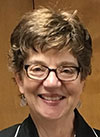
A Wisconsin police officer found Rosalee wandering coatless when the temperature was 25 degrees. Rosalee was disoriented, cold, and ill. She told the officer that she was walking to her nearby home – in Phoenix. She could not give her full name or a local address. Rosalee was admitted to the hospital and was met there by an adult protective services (APS) social worker.
The APS worker eventually learned that Rosalee’s daughter Janet had a financial power of attorney that she was using to raid the bank account into which Rosalee’s Social Security check was deposited. Janet had also sold various items from Rosalee’s apartment on eBay and kept the money for herself. When questioned, Janet admitted that her mother was confused and did not notice when Janet “borrowed” from her or when small items went missing.
The treating physician confirmed that Rosalee was cognitively impaired and should not live on her own – an observation that was confirmed when the APS worker saw the state of Rosalee’s tiny apartment. The physician was also concerned about the multiple unexplained bruises on Rosalee’s arms.
Although Rosalee’s physical health improved in the hospital, her cognitive deficits did not. She was diagnosed as being in the early stages of Alzheimer’s disease. In the end, after an appropriate investigation and finding no workable alternatives, the APS worker referred the case to the county corporation counsel for guardianship.
In a situation like Rosalee’s, the consequences of a delay in implementing guardianship might be extreme: continued financial exploitation, possible physical abuse, medical instability, and physical danger as a result of cognitive impairment. And yet, in many places, this guardianship would be delayed, not because the legal standards for guardianship are iffy (the hypothetical assumes appropriate facts) but because no one is available to become Rosalee’s guardian. A fit and willing family member is typically the first choice, but the Janets of the world do not meet that standard.
Considering Available Options
In the absence of a fit and willing family member, the choices narrow. If a proposed ward has sufficient funds and assets, then those can be used to pay a professional or corporate guardian.1 If the individual’s assets are insufficient, then payment for a professional or corporate guardian becomes complicated and involves public benefit programs, county resources, and medical assistance (Medicaid).2 As a result of funding issues, a necessary guardianship may depend on the availability of a volunteer, unpaid guardian.
 Gretchen Viney, U.W. 1978, is a Distinguished Clinical Professor and Director of the Lawyering Skills Program at the U.W. Law School. She chairs the Content Subcommittee of the Wisconsin Lawyer Editorial Advisory Board.
Gretchen Viney, U.W. 1978, is a Distinguished Clinical Professor and Director of the Lawyering Skills Program at the U.W. Law School. She chairs the Content Subcommittee of the Wisconsin Lawyer Editorial Advisory Board.
Of course, not all vulnerable elders need a guardian. In many situations, guardianship is unnecessary because alternative decision-making procedures are adequate and already in place. Unlike Rosalee, many individuals have available and suitable family members or friends who might serve as agents under a durable power of attorney for finances or a health care power of attorney. Some individuals have trusts or conservatorships that protect their assets. When alternatives to guardianship work well, they are good choices. However, those alternatives, all outside the immediate supervision of the courts, are ripe for exploitation by unscrupulous agents and dishonest family members.
Guardianships exist for a variety of reasons, but the most compelling are the need to protect the health and safety of the individual and to protect against financial exploitation. A well-crafted guardianship is often necessary to protect the individual because less-formal methods cannot be implemented or have already failed. Rosalee is in this category. She needs a guardianship but is without funds to pay for a guardian.
Protecting Older Clients

This article is one of a series of articles that focus on how lawyers can help older clients avoid or end elder abuse. Other articles in the series include the following:
Finding a Qualified Guardian Through a Volunteer Program
If Rosalee lives in Dane County, the APS worker can seek a trained volunteer guardian by contacting Katie Brietzman, coordinator of the Volunteer Guardianship Program at NewBridge. Brietzman, with a background in social work and case management, would learn as much about Rosalee as possible and then propose a match for Rosalee with a volunteer guardian.
NewBridge is an agency created in 2019 by the merger of four Madison senior coalitions. The Volunteer Guardianship Program began in 2001 when the need for trained and supported volunteers was identified as a social services priority. Originally based in the South Madison Coalition of the Elderly, the Volunteer Guardianship Program initially was funded by United Way and is now funded by Dane County and the city of Madison.
Separately, Brietzman also supervises the NewBridge Volunteer Representative Payee Program. (In situations when an individual needs someone to manage government benefit payments but not make legal decisions for that individual, Brietzman can match a volunteer representative payee with the individual. This program requires less work than the Volunteer Guardianship Program.)
Managing the Volunteer Program
Brietzman’s direct responsibilities in the Volunteer Guardianship Program include recruiting and training volunteer guardians, maintaining contacts with the guardians as they perform their duties, trouble-shooting difficult situations, and informing the community about the program. Currently, the program has 65 volunteer guardians. The numbers are somewhat fluid based on supply of volunteers and referrals for matches. During the past five years, the number of volunteers has increased by 40 percent; the number of wards served has increased by 28 percent.
The volunteers are from all walks of life and, based on life experiences, can identify with the need for guardianship and feel equipped to handle the responsibility. “We might have a banker who feels comfortable managing funds and can serve as guardian of the estate, or a teacher who was guardian for her now-deceased mother and feels empowered to help someone else,” explained Brietzman. “The reasons for volunteering are unique, but all the volunteers are dedicated to the community and to the individuals they serve.”
Brietzman trains each volunteer one at a time, covering topics such as duties and responsibilities of guardians, authority (and limits of authority), decision-making, “best interests,” relationship building, standard forms, record-keeping, and resources. Each volunteer receives a binder of materials for future reference. During the training, Brietzman also focuses on getting to know the volunteers so that she can make successful matches. Even after being chosen for a particular individual, the matched volunteer has an opportunity to meet with the proposed ward and can decline the match after that meeting.
Brietzman attributes the success of the program to careful and personal matches between the volunteer and the ward. She believes the key is to find a volunteer who can work with, and advocate successfully for, the specific individual.
Once a volunteer is successfully matched with a proposed ward, the county (or the petitioner, if not the county) nominates that individual as the guardian as part of the guardianship process. The court then appoints the volunteer guardian as part of the proceedings. The program continues to mentor and support the guardian after appointment. The volunteer guardians receive no compensation, not even expenses, but have the training and long-term support they need to act successfully as guardians. The volunteers serve, and continue to serve, because they believe that they contribute both to the community and to the well-being of vulnerable individuals.
For More Information
For more information about the Volunteer Guardianship Program, contact Katie Brietzman at NewBridge; https://newbridgemadison.org/; (608) 512-0000.
Supporting the Volunteer Guardians
Brietzman spends much of her time supporting volunteer guardians as they maneuver through the legal process or face difficult decision-making situations. She regularly reaches out to the volunteers to get updates and to address any questions or concerns they may have. In close collaboration with the volunteers, Brietzman also communicates regularly with hospital personnel and institutional social workers, often explaining the limits of guardian decision-making and ensuring that everyone involved understands the role of the guardian. Educating others about guardians and their roles is an ongoing undertaking. Brietzman maintains a close working relationship with the county APS program and local managed care organizations.
On a broader scale, Brietzman produces a quarterly newsletter with articles and information pertinent to issues faced by guardians and also conducts quarterly group meetings. A recent newsletter touched on Medicare open enrollment, frontotemporal dementia, and the permitted uses of Social Security benefits. The quarterly meetings offer an opportunity for guardians not only to learn but also to share experiences, successes, and frustrations.
Replicating the Program
This program could be replicated elsewhere. Brietzman is active on the steering committee of the Wisconsin Interdisciplinary Networks of Guardianship Stakeholders (WINGS) and has made statewide connections through that group and its three summits. She hopes that by spreading the word about the NewBridge program, she can seed similar programs elsewhere. “You would initially need forward-thinking people who would understand the long-term savings and benefits of using trained volunteer guardians,” she stated.
Brietzman estimates that the Volunteer Guardianship Program has resulted in savings of up to $150,000 per year from other county and government resources that must be used to pay nonvolunteer guardians. Having a volunteer guardian program also reduces the paperwork associated with paying a guardian through county or government benefit programs.
A well-crafted guardianship is often necessary to protect the individual because less-formal methods cannot be implemented or have already failed.
The logistics to create a program are straightforward. The program requires a knowledgeable manager who can take the lead in recruiting and training volunteers. The ideal candidate would have a background in social work or law, possess outstanding interpersonal skills, and be comfortable in both public outreach and individual training. Brietzman works full time, but a smaller program might be able to function with a part-time manager. At the beginning, the manager would need to create working relationships with the county APS unit and the circuit courts so that referrals would be coordinated and organized. The manager would also need to develop a predictable application and screening process for volunteers, including a method for conducting background checks.
Training volunteers is a central component of this type of program. Putting together training materials would be manageable because many resources are readily available through the Guardianship Support Center of the Greater Wisconsin Agency on Aging Resources (GWAAR),3 the Wisconsin Department of Health and Family Services, local Aging and Disability Resource Centers, and other government and social services agencies that work with victims of abuse and neglect. The training itself, which Brietzman conducts individually, could also be handled in a group setting depending on how the program recruits volunteers.
The value and effect of a volunteer guardianship program would be most immediately realized by the county courts and departments of social services. These entities are often seeking volunteer guardians but are without dedicated training programs to attract and support those volunteers.
“Our program certainly minimizes the risk of elder abuse by providing impartial, trained guardians who are able to make solid decisions on behalf of the vulnerable elderly, assuring their funds are used appropriately and they are in safe living situations,” concluded Brietzman. “We would like other counties to be able to build similar programs, suitable to their particular needs and locations. We look forward to the time when every ‘Rosalee’ has a well-trained, dedicated, and supported volunteer guardian.”
Endnotes
1 A list of Wisconsin registered corporate guardians.
2 See Wis. Guardianship Ass’n, General Fee Standards and Guidelines: Recommendations for Compensating Wisconsin Corporate Guardians 9 (June 2018). The association’s website is at www.wisconsinguardianshipassociation.com.
3 https://gwaar.org/guardianship-resources.
